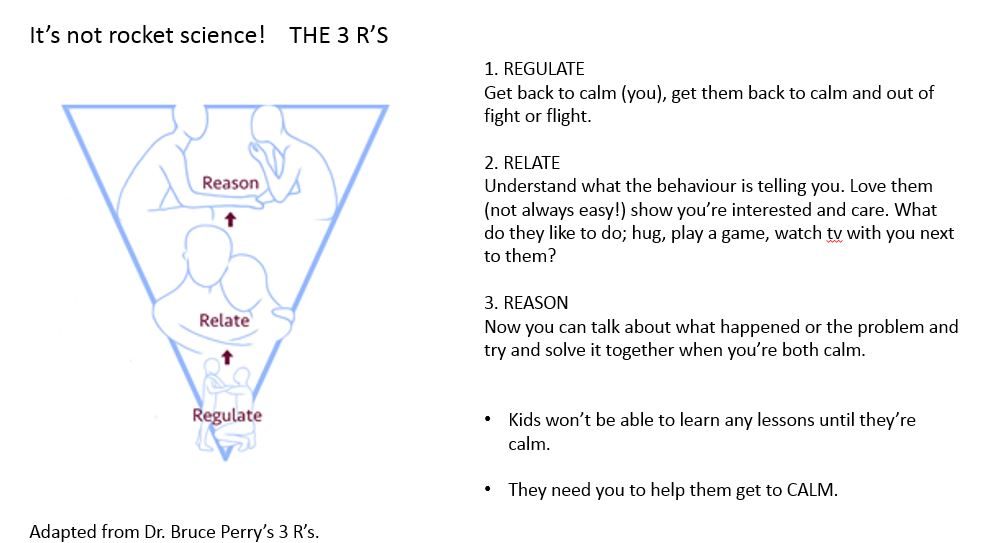Positive attachment is crucial for children’s development.
We want all our staff and services to be attachment, nurture and trauma informed. Staff are using a variety of approaches and tools to increase their knowledge and skills, and support parents. We want to ensure we join this work together to have an integrated approach to developing attachment, nurture and trauma informed practice to help our children and young people to have the best chance in life.
On this page you will find information on:
- Five to Thrive
- It’s Not Rocket Science – Parent’s Group
Five to Thrive Resources (Leaflets for Parents & Staff)

Five to Thrive: Why People Need People
Five to Thrive: A Guide for Parents and Carers
Five to Thrive: A Supplement for Parents of Toddlers
Five to Thrive: An Annotated Guide
Five to Thrive: An Introduction for Parents-to-Be
Why Five to Thrive in Falkirk?
Falkirk Children’s Commission is committed to developing attachment, nurture and trauma informed practice across all services working with children and their families, and related adult services. Working with Kate Cairns Associates, the Commission is using Five to Thrive as an approach to:
- Develop a common language about attachment across services
- Have open and honest conversations with parents/ families about attachment and how they can promote this with their children
- Ensure attachment is considered and informs assessment and planning
- Give a framework to practitioners to ‘put the science into action’ when working with families.
As practitioners embed the approach in their work, every interaction can become an opportunity to reinforce positive development, to share information, and to model behaviours that will help to nurture positive attachment for all families.
Raising awareness with all staff:
Please use the team briefing and short presentation with your staff teams to discuss attachment informed practice.
(2016) FTT Team Briefing Slides
Parent’s Group – It’s not rocket science!
We recently ran a parents group based on Bruce Perry’s 3 R’s, attachment and brain development, to support emotional regulation and managing behaviour. The group was facilitated by 2 x SEBN family support workers and an Aberlour Family Support Worker.
The group has recently been nominated for a Scottish Government Improvement Award – Find out about what happened and our results here
This key messages were repeated each week:

What we did:
The whole test of change was 10 weeks. Workers met parents before the group started, either meeting once with a follow up call or meeting 2 weeks. The group ran for 6 weeks with 2 follow up phone calls. We captured data on stress and parent’s perception of their kids behaviour. We did this for 10 weeks either at the group or on the phone.
Each parent had a link worker who knew them before the group started. This was to make sure they had support through the 10 weeks and outside the group. Some parents required a lot of support others didn’t. Each parent was given a folder in week one to keep their group slides, weekly score sheets, handouts, stress reducing materials and information. In week 1 and 2, the parent’s information and contact details, and stress/ behaviour sheet score was done with the parent.
Parent’s Information & Contact Details
What happened each week?
We organised taxis, creche and provided lunch at the start of each session. Parent’s came together, had lunch and then took part in the weekly group learning, (see the text of change planning sheet for the topics each week).
Group slides – we do have but they are too big to upload! Get in touch for more info; let us know what organisation you’re from and what you plan to do with them.
Parents discussed their own stress scores and their children’s behaviour score. This gave the group chance to discuss how they felt, were they using the 3 R’s and how they could do things differently if they wanted to try new approaches. Parent’s scored themselves each week and the facilitators recorded the weekly scores on their total scores sheet for each parent. Feedback from the group was that initially stress increased as parents were nervous about; being in the group, about discussing past experiences and trying a new way of managing things. For all participants stress started to come down by then end of the group. Parents all said they now understood if they were calm, their children would be calmer too.
Facilitator sheet – All Scores – 10 weeks
Parents learned a lot and so did we. If you want to have a chat about what we did please get in touch via girfec@falkirk.gov.uk
To find out more about Trauma Informed Responsive Practice, please see the dedicated page here.

